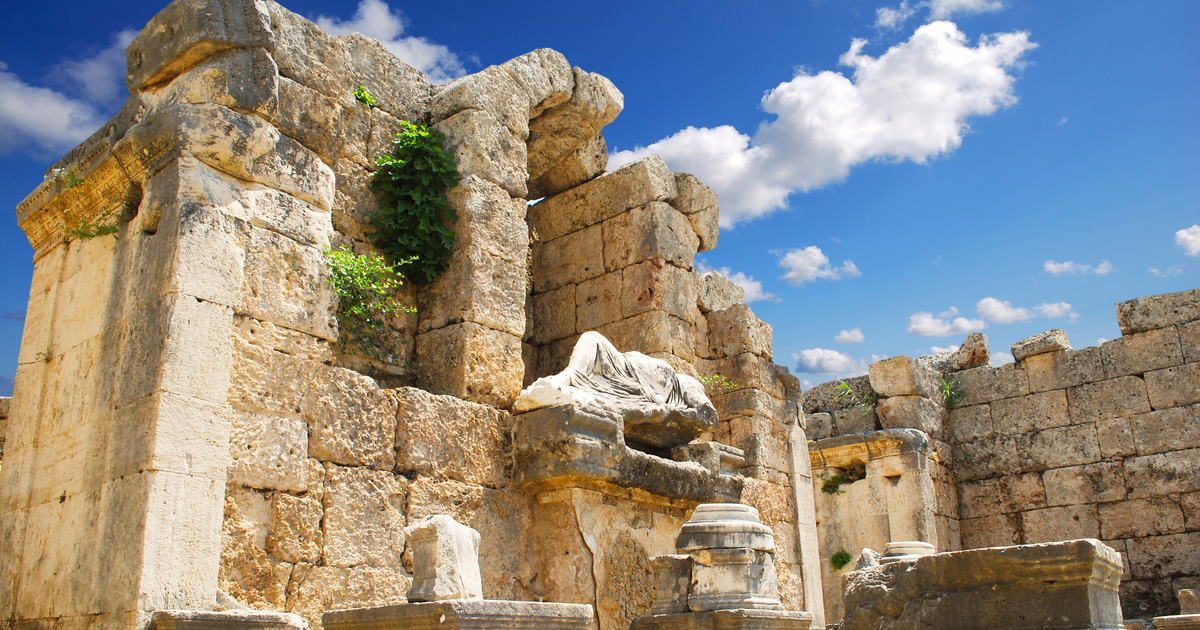If you spend time in Antalya, you shouldn't miss the ruins of the ancient city of Perge, or Perga.
It is one of the oldest ancient cities in Turkey and richest cities in ancient times and was the capital of the Pamphylia region. It will transport you back 3000 years.
In this article, you will find all the important information you need to know before visiting the ancient city of Perge in Antalya on the south coast of Turkey.
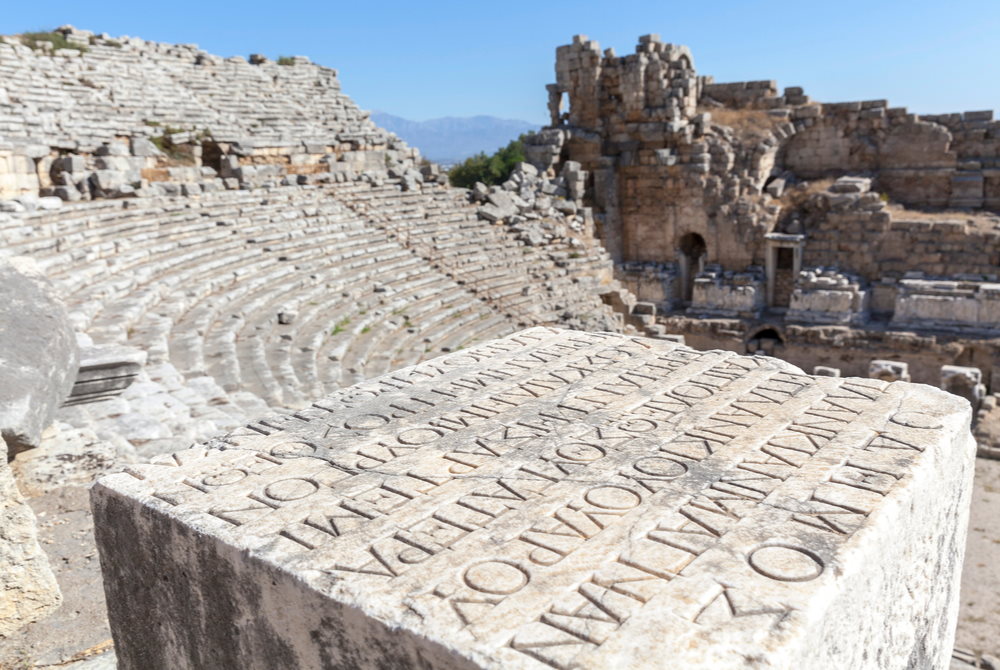
What Can I Do in Perge?
The ancient city of Perge is one of the most organized Roman cities. Among the important remains, you will find bath complexes, four fountains, colonnaded streets, an agora, two basilicas, hellenistic towers, palaestras, a theater, a stadium, and a temple dedicated to Goddess Athena. The fortification walls are still visible.
Perge stands out with both its architecture and marble sculpture craftsmanship.
The city was the hometown of several scientists and philosophers. The most famous of them was Apollonius, who was a master mathematician and astronomer in ancient times.
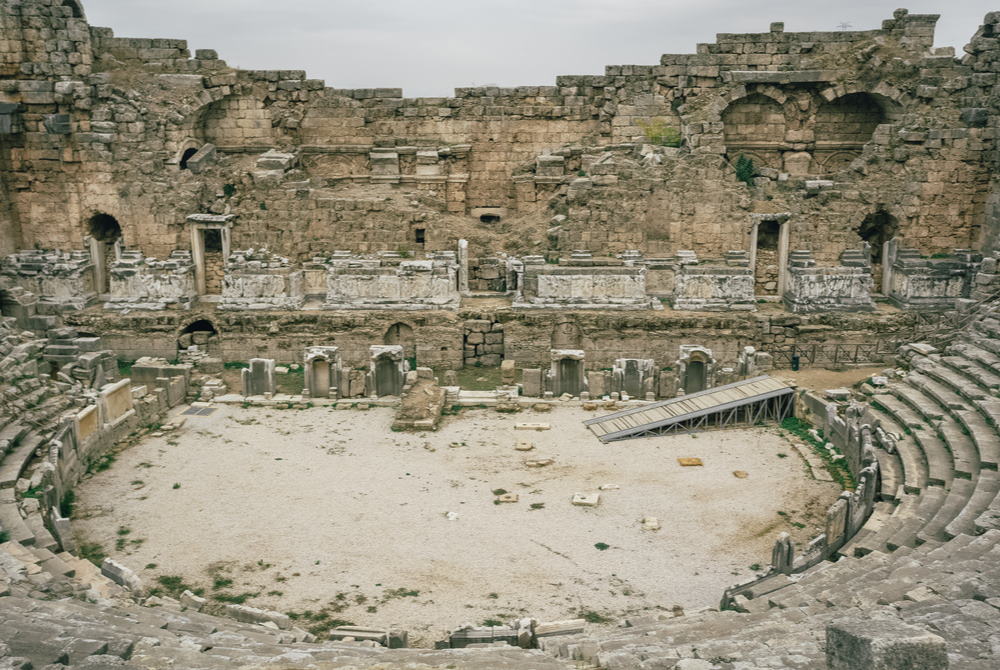
Theater
Located at the entrance, you will find a Greco-Roman style theater leaning against the side of the hill. It could accommodate up to 15,000 people. The facade of the theater has five gates and was richly decorated. The stage was also decorated with marble reliefs, some of which can be seen in the Antalya Museum today.
Stadium
Perge Stadium is one of the best stadiums that has survived from the ancient world. It measures 34 square meters with 13 rows of seats on top of the vaults. The capacity of the stadium is 12,000.
Fountain
A monumental fountain (nymphaeum) dedicated to Emperor Septimius Severus is standing near the entrance. Some statues and sculptures of the nympaeum are exhibited at the Antalya Museum.
City Walls and Towers
The city walls date back to the Hellenistic and Roman periods. Two towers have survived in good condition at the entrance to the site.
Thermal Baths
The thermal baths date back to 2nd century. They had various rooms decorated with statues and a courtyard lined with columns and reliefs. The heating system under the floor can be seen today.
Agora
The Agora was the commercial and political center of the city. There were shops all around the central courtyard. The flooring of some shops were covered with mosaics.
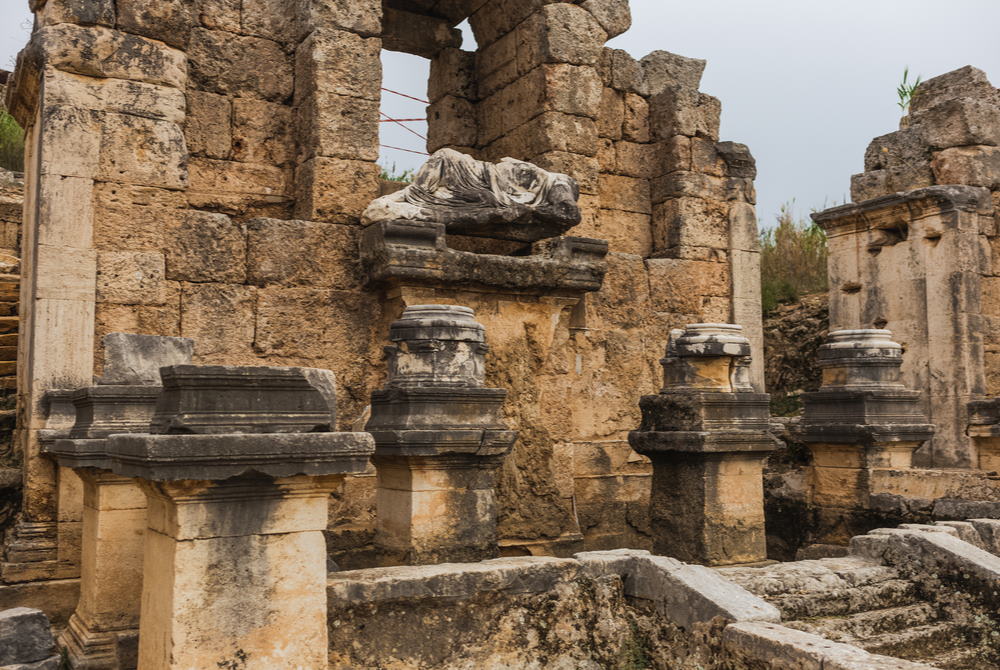
Monumental Fountain (Nymphaeum)
At the end of the columned street there is a monumental fountain dedicated to Emperor Hadrian. A statue of Kaystros (The God of the River) stands in the center of the nymphaeum in a reclining position.
Entrance, Tickets, and Tours
If you have a Museum Pass, you can visit this historical ancient city free of charge.
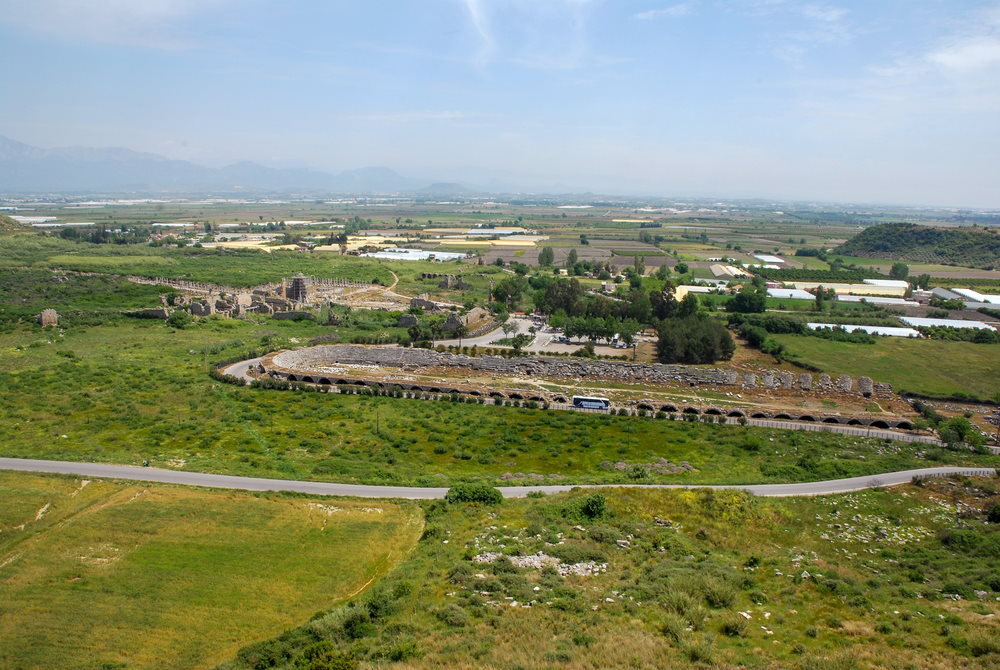
How to Get to Perge from Antalya
Perge is 17 kms from the center of Antalya. There are 2 ways to get here:
- Bus: From the center of Antalya, take bus number AC03 to the Aksu district. It takes about 1 hour to get to the site with this bus.
- Private vehicle: After arriving in Aksu following the "Perge" sign, continue on road in front of the Gendarmerie unit for 2km. It takes 20 mins to get to the site by car. You can rent a car in Antalya thanks to our special guideline:
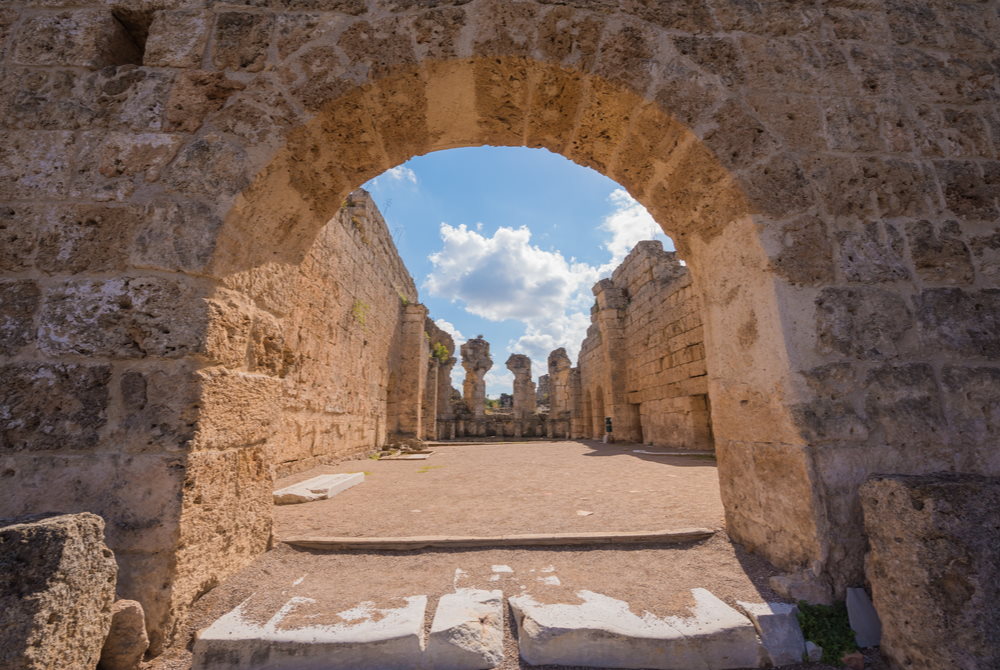
FAQ (Frequently Asked Questions)
March to May (Spring) and September to November (Autumn) are the best times to visit Antalya. Due to its Mediterranean climate, the region has hot, dry summers and wet, humid winters.
If you have a Museum Pass, you can visit this historical ancient city free of charge. Please check this website for the current prices and visiting hours .https://muze.gov.tr/
Perge is located 17 km east of Antalya city center.
Some of the most important remains are bath complexes, four fountains, colonnaded streets, an agora, two basilicas, hellenistic towers, palaestras, a theater, a stadium, and a temple dedicated to Goddess Athena. The fortification walls are still visible.
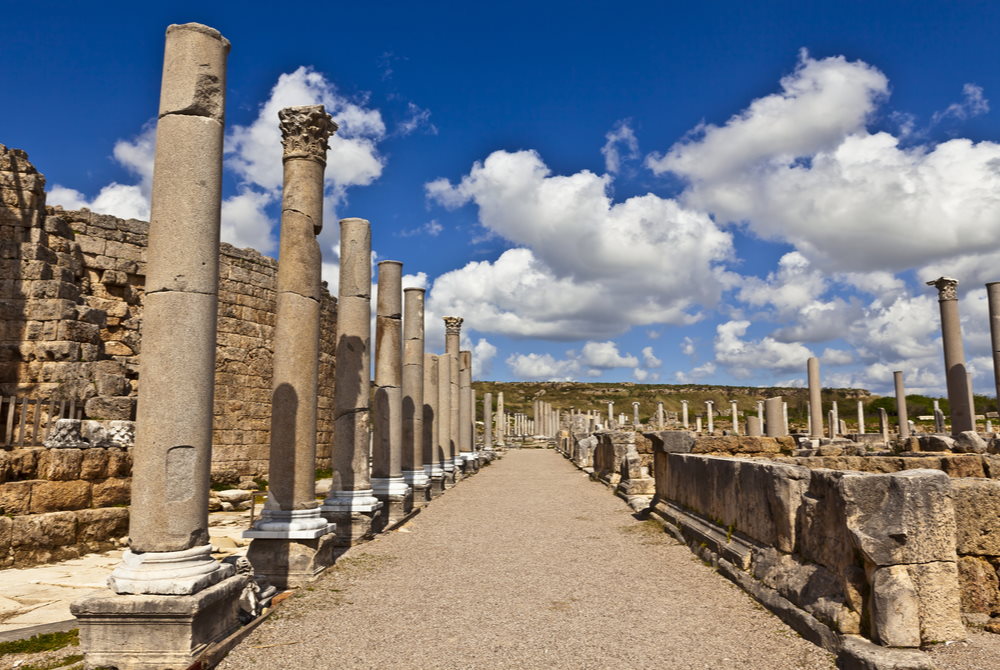
The History of Perge
Perge was ruled by Persian Achaemenids until 333 BC. Alexander the Great took over the control and the city lived its first heyday during the Hellenistic period. Alexander the Great took the city without a fight in 334 BC. It's possible to see many remains in Perge from this period, such as the city walls and the city's two towers. Following the death of Alexander the Great, the city was under the rule of his commander, Antigonos, for a while and then ruled by the Seleukos Kingdom.
The golden age of Perge was under the rule of the Roman Empire. The city prospered and became one of the richest cities of the Pamphylia Region during the Roman period.
Perge is very important place for Christianity, as the city was visited by the Apostle Paul, the Evangelist Mark, and Barnabas, who preached Christianity. Perge was cited as the metropolis of the Pamphylia Region until the 13th century.
Archaeological excavations in Perge first started in 1946. The excavations are still in progress. Some artifacts are exhibited on site, while others are waiting for visitors at the Antalya Archeology Museum.
Perge Archaeological Site was added to the UNESCO Tentative List in 2009.
Learn more about monuments in Antalya with our guide to ancient ruins in Antalya.

